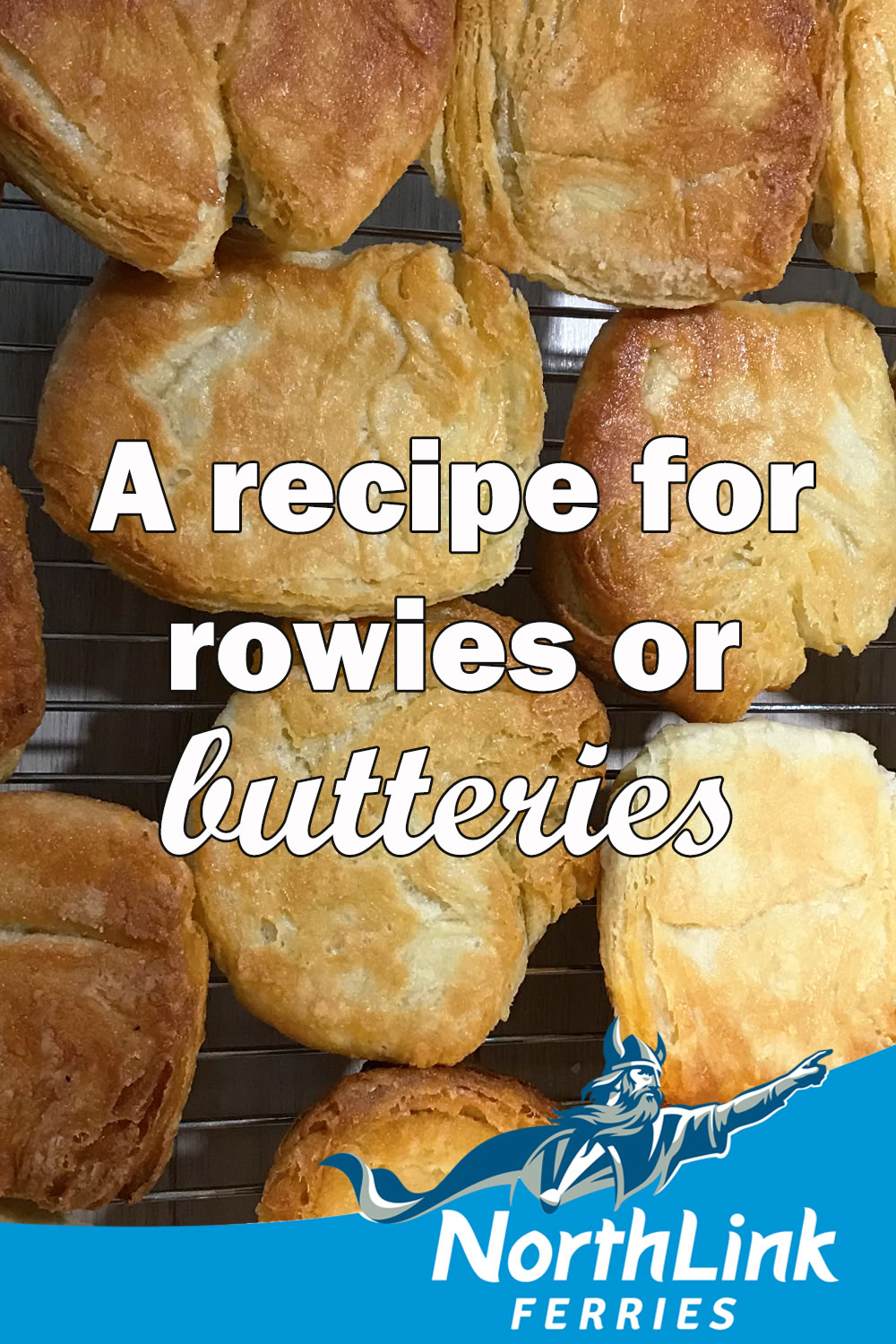A recipe for rowies or butteries
A staple part of any Aberdonian diet, Rowies, also known as Aberdeen Rolls or Butteries, can best be described as a salty flat croissant which is less flaky. Rowies make the perfect breakfast treat or accompaniment to your afternoon cup of tea. They are usually served toasted with either butter or jam but can also be eaten cold with no topping at all.
You’ll find these treats in almost any bakery in the North East of Scotland and beyond, but we have a delicious recipe so that you can make 16 in your own kitchen!
There are a few stories about the origin of rowies, but the one we like best is that they were made for sailors going to sea for long periods of time. The heavy starch content of rowies kept the sailors going!

You’ll find these treats in almost any bakery in the North East of Scotland and beyond, but we have a delicious recipe so that you can make 16 in your own kitchen!
Ingredients:
- 2 teaspoons of yeast
- 1 tablespoon soft brown sugar
- 450ml warm water
- 500g plain flour
- A generous pinch of salt
- 250g butter
- 125g lard

Method:
- Pour a good dose of the warm water into a bowl and make a paste with the yeast and sugar. Set it aside for the yeast to activate
- In a big bowl mix the flour and salt together. Add the rest of the water and the frothy yeast paste, mix well so it become a dough, and leave for about a half an hour in a warm place to rise.

- Meanwhile cream the butter and lard together – this is best done with the butter and lard at room temperature. Divide this mix into exactly three and set aside.

- After allowing the dough a half an hour to rise, take it out. Knead the dough mixture – it may be quite glue-like so add a bit of flour to dry it out and make it less sticky.

- Flour a surface, and roll the dough out into a rectangle which is 1cm thick.

- Spread one third of the butter and lard mix over the bottom two thirds of the dough. If the mix is cold this may be best done with warm hands, if you don’t mind getting mucky!

- Fold the dry top third of the dough over the middle third of buttered dough, and fold the bottom, buttered third over the top of it all, so there are three layers. Use your rolling pin to flatten the dough back to the rectangle shape and put it onto a tray.
- Put the tray into the fridge to cool for 45 minutes.
- Take the rectangle out, and spread another third of the butter mix onto the dough. Fold it over as before, flatten it out and put it back in the fridge for another 45 minutes.
- Once again, take the rectangle out, and spread the last third of the butter mix onto the dough. Fold it over one last time, flatten it out and then cut it into 16 equal portions.

- Shape these portions into very rough circles and place on a baking tray. Put them into a warm place to rise for 45 minutes.

- Finally bake at 200°C for 15 minutes. Leave to cool.
- Best eaten cold or toasted with butter or jam!
 By Magnus Dixon
By Magnus DixonOrkney and Shetland enthusiast, family man, loves walks, likes animals, terrible at sports, dire taste in music, adores audiobooks and films, eats a little too much for his own good.
Pin it!

